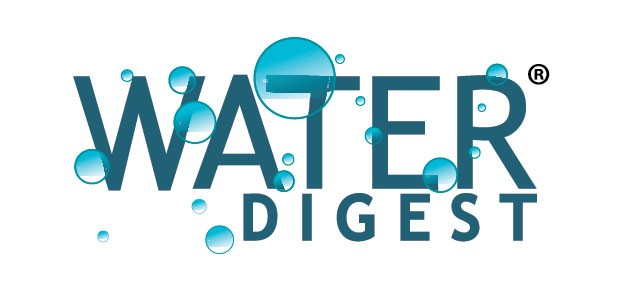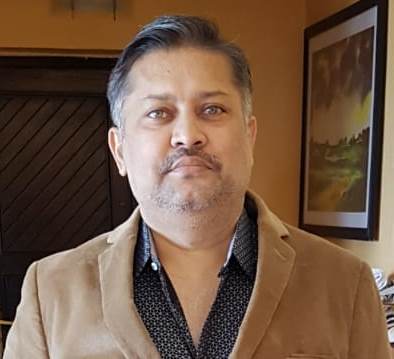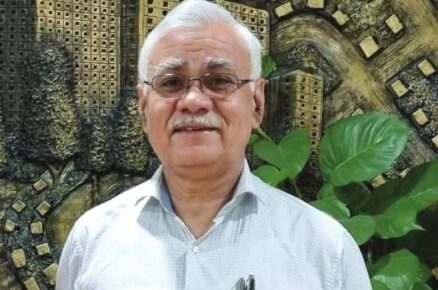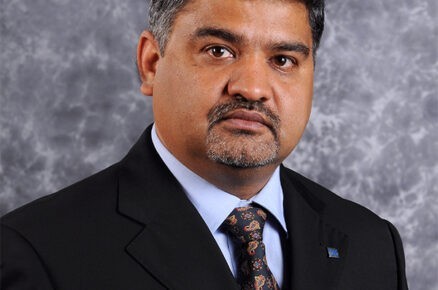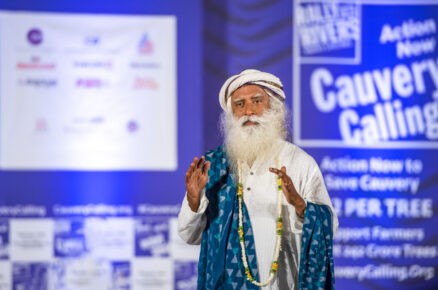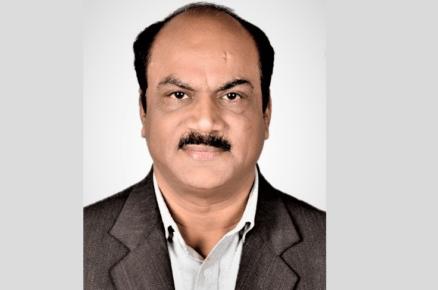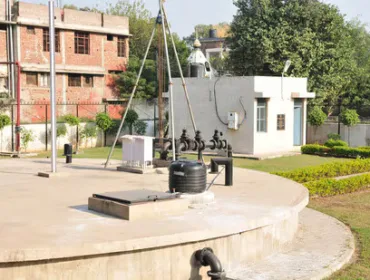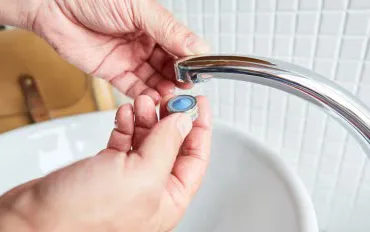Mr. Sabarna Roy, Senior Vice President
Electrosteel Castings Limited
Electrosteel Castings Limited (ECL) is a pioneer in the production of Ductile Iron Pipes in India and is a five-decade-old Water Infrastructure Company providing techno-economic solutions for water supply and sewerage systems. Mr Sabarna Roy, Senior Vice President of the company spoke to Water Digest about the company’s profile, its strengths and vision as a Green Company. Here is an interview.
Water Digest (WD): What goes on behind the creation of products at Electrosteel?
Sabarna Roy (SR): We manufacture various kinds of ductile iron pipes, and ductile iron fittings with different joints, linings, and coatings for multifarious applications in the water, wastewater, irrigation, and industrial water applications. In West Bengal, we have plants at Khardah, Bansberia, and Haldia; in Tamil Nadu, we have a plant at Elavur, and in Andhra Pradesh, we have a plant at Tirupati. All plants have various processes but the generic one is processing of input materials into hot metal, thereafter leading the hot metal through various stages of processing to arrive at the finished products followed by inside and outside finishing services. Concurrently, stringent QA and QC norms are applied at every stage for obtaining a world-class state-of-the-art product. We are an ISO 9001:2015, ISO 14001:2015, ISO 50001:2011, ISO 45001:2018, and SA 8000:2014 accredited Company.
WD: What is the spectrum of your services and what new extensions have been added to your organisation?
SR: Apart from manufacturing ductile iron pipes, and ductile iron fittings, we prepare system, and detailed engineering reports in the water, wastewater, irrigation, and industrial water segments for helping customers, and consultants in visualising technological problems associated with long distance transportation of water systems/networks. We are continuously upgrading our product mix by adding to various kinds of joints, and finishing. We also undertake comprehensive resolving of problems during erection, commissioning, and operation stages by deputing our supervisory engineers, and staff.
WD: How is your technology more economically sustainable than others?
SR: We are a Green Company, and we elaborate this by enumerating the following points:
I. Electrosteel is effectively maintaining the Environmental Management System Standard ISO 14001 since 2004. It is one of the first ductile iron pipe plants in the world to be accredited with ISO 14001 certification.
II. Electrosteel has a 12 MW powerplant at Haldiaasa Clean Development Mechanism (CDM) project. In this project, sensible heat in the waste gas emissions from the Coke Oven Plant and Sponge Iron Plant is utilised for power generation saving approximately 78,000 MT of carbon dioxide emissions into the atmosphere, every year. It is registered as a CDM project with UNFCCC United Nations Framework Convention for Climate Change (UNFCCC) under Kyoto Protocol. Recently, Electrosteel has commissioned one 5 MW Waste Heat Recovery Power Generation unit at Haldia with the same technology to reinforce its commitment for a greener tomorrow.
III. Our Haldia plant is a zero-discharge plant and in the Khardah Plant, we are recycling around 86% waste water.We propose to make it a zero-discharge plant soon.
IV. The company conducts plantation programmes as a regular activity in and around all its premises as a part of greenery development. A number of local flora has been planted at the plant premises and adjoining areas. The 750 species of plants in and around the works help in the abatement of suspended particulate matter.
V. The sintering plant uses iron ore fines and utilises waste generated from different process, Blast Furnace Gas Cleaning Plant and other carbon bearing and iron bearing solid wastes to produce sinters for feeding in blast furnace. The sintering plant has been declared a zero-waste plant because it recycles waste.
VI. Electrosteel has sponsored various campaigns for spreading awareness on environment issues in the neighbourhood. Staff members from various Polytechnics, along with the Faculty of National Institute of Technology Teachers’ Training & Research regularly provide in-plant training on environment and safety measures.
WD: Please share some successful case studies where the products/technology of Electrosteel Castings Limited contributed towards improved water management?
SR: More than 15,000 water and wastewater supply projects have already been implemented in India and abroad successfully with ductile iron pipes and ductile iron fittings manufactured by us.
Key drivers for life cycle cost reduction:
The following key drivers can be highlighted:
I. Leakage: Strong material properties, and flexibility of joints contribute to prevent the leakage incident on buried ductile iron pipes.
II. Durability: A service life of 100 years is commonly recognised for ductile iron pipes buried in usual conditions. However, it can be reduced or increased considering the nature of the pipe coating, and the local soil conditions.
III. Conveyance capacity: For a given nominal diameter, ductile iron pipes are duly designed with a larger internal diameter to reduce the head loss on energy pumping, and the operation cost such as the electric power usage cost.
IV. Recyclability: Excavated iron pipes can be reused as a raw material to manufacture new ductile iron pipes. Benefits of lower-cost production can be expected in a case where natural resources are used, allowing the disposal cost to be reduced.
The development of new methods of laying (re-use of excavated soils for backfilling, narrow trench, etc.) can also contribute to reducing the construction cost.
WD: How do you think the government and private players of the water industry can come together and work on developing the Indian water sector?
SR: The government and private players can play a joint role in preparing a comprehensive national manual on water, and wastewater pipeline systems both for municipal, public health, and industrial as well as urban, and rural, which should drive future investments and policies in these segments.
WD: Please tell us something about the proficiencies of your benchmark initiative under ‘Safe Drinking Water for All?’
SR: All our products that come in contact with water are tested in accordance with WRAS, UK stringent standards to ensure that they do not adversely impact on potability of the transported fluid. Secondly, our pipe joints are type tested under simulated conditions for checking leak tightness under extreme conditions so that infiltration of water from outside subsoil and exfiltration of water from inside do not take place under any condition. These tests are done under high positive internal test pressure, high vacuum pressure, high external loads, and cyclic loading.
WD: What is your corporate vision?
SR: Electrosteel Castings Limited (ECL) aims to be world-class, committed to customer satisfaction, and encourage the spirit of leadership amongst our dedicated team by creating a healthy environment for continuous growth, profit, and prosperity.
WD: Would you like to give any message to share with our readers?
SR: Electrosteel is practising TPM. It was awarded for TPM Excellence by JIPM (Japan). Electrosteel has also been awarded for Excellence in consistent TPM commitment by JIPM. TPM culture has been made a way of life, and has percolated throughout the hierarchy. It is continuously maintained with all the enthusiasm involving, and motivating personnel at all levels. With the support of all pillars, TPM are also working for achieving TPM Mission of ‘Zero Loss, Zero Defect, Zero Accident, Zero Pollution’.

